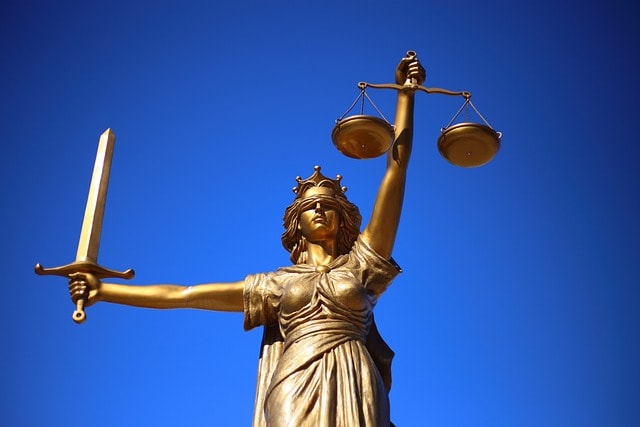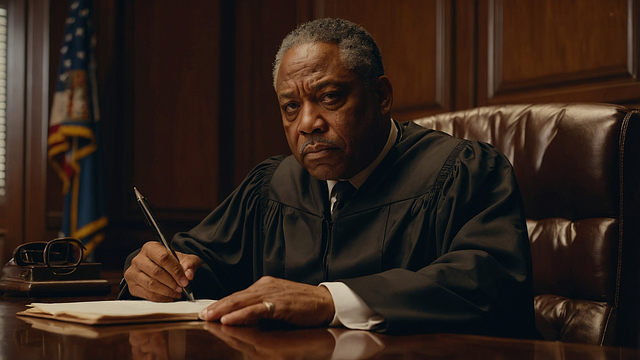Will Pending Criminal Charges Show Up in a Background Check in Minnesota?
In short, whether pending criminal charges appear on a background check in MN depends on the type of background check, reporting agency, and other factors. Here’s a breakdown:
- May Show Up: Pending felony charges are more likely to appear on a background check than misdemeanor charges.
- May Not Show Up: Charges still under investigation or recently filed might not be reflected.
Uncertain about your situation? Consult with a skilled Minnesota criminal defense attorney to understand how pending charges might impact a background check.
Understanding Background Checks in Minnesota
When applying for a job in Minnesota, understanding what shows up on a background check is crucial. Employers typically perform these assessments as part of the employment background screening process to measure the suitability of potential employees. This article delves into whether pending criminal charges appear on background checks in Minnesota, the applicable laws, and what you can do about it.
Basics of Minnesota Employment Background Check Laws
Minnesota has specific laws regulating employment background checks to ensure fair treatment. These laws outline what employers can and cannot consider when hiring.
Minnesota’s Ban the Box Law
Minnesota’s “Ban the Box” law prohibits employers from inquiring about an applicant’s criminal history until after the applicant has been selected for an interview or a conditional job offer. This statute aims to give individuals with criminal records a fair chance at employment.
Data Practices Act
The Minnesota Data Practices Act governs public and private entities’ handling of personal information. This act includes provisions about what criminal records can be accessed and used by employers during background checks.
Additional Local Laws on Minnesota Employment Background Checks
In addition to state laws, local ordinances in cities like Minneapolis and St. Paul impose additional restrictions on how employers can use criminal records in hiring decisions.
Minneapolis Ordinance
The Minneapolis ordinance extends the Ban the Box law, requiring employers to wait until a conditional job offer is made before conducting a background check. Employers must also provide the applicant with a copy of the background check and allow them to respond.
St. Paul Ordinance
St. Paul’s ordinance is similar to Minneapolis’s, emphasizing the need for fair hiring practices and providing applicants with a chance to explain their criminal history before making a final employment decision.
Federal Laws on Employment Background Checks
Federal laws also regulate employment background checks. Employers must comply with multiple federal statutes outlining how background checks should be conducted and applicants’ rights.
- Fair Credit Reporting Act (FCRA) The FCRA requires employers to obtain written consent from prospective employees before conducting a background check. It also mandates that employers provide a copy of the report and a summary of rights to the applicant if any adverse action is taken based on the report. Employers must certify the relevant consumer reporting agency that it has provided the required disclosures.
- Equal Employment Opportunity Commission (EEOC) Guidelines The EEOC provides guidelines to prevent discrimination based on criminal history. When making hiring decisions, employers must consider the nature of the crime, the time elapsed, and the relevance to the job.
What Shows Up on a MN Background Check?
Understanding what information appears on a background check in Minnesota can help applicants prepare. Generally, background checks include:
- Criminal records
- Employment history
- Education verification
- Credit history (for certain positions)
- Driving records
The information may include details on both pending and dismissed charges. When pending criminal cases appear on a background check in Minnesota, employers can see charges that have not yet been resolved, which can impact hiring decisions.
Dismissed criminal cases may still appear on a background check unless they have been expunged. Expungement can remove these records from public view, but the process can be complex and varies depending on the case.
Rules Your Minnesota Employer Must Follow to Run Employment Background Checks
Employers in Minnesota must follow two specific rules when conducting background checks to ensure fairness and compliance with state and federal laws.
Written Consent
Employers must obtain written consent from the applicant before conducting a background check. This consent form should outline what information will be checked and how it will be used.
Disclosure of Findings
If an employer decides not to hire an applicant because of information revealed on the background check, they must provide a copy of the report and a summary of rights. This allows the applicant to review the findings and dispute any inaccuracies.
Expungements in Minnesota
Expungement is the process of sealing criminal records from public view. In Minnesota, individuals with dismissed charges or certain convictions may be eligible for expungement.
Eligibility for Expungement
Eligibility for expungement depends on the nature of the offense and the time elapsed since the conviction or dismissal. Non-violent offenses and cases that resulted in dismissal or acquittal are more likely to be eligible.
Expungement Process
The expungement process involves filing a petition with the court, attending a hearing, and demonstrating that expungement is in the public interest. Successful expungement can help individuals clear their records and improve their employment prospects.
The Impact of Expungement on Background Checks
Expungement can significantly affect what appears on a background check. Once a record is expunged, it should not be accessible to employers or the public.
Sealed Records Expunged records are sealed and cannot be viewed by employers. This means that dismissed charges or old convictions will not appear on a background check, allowing individuals to move forward without the burden of a criminal record.
Practical Steps for Applicants with Pending Charges
If you have pending criminal charges and are applying for jobs in Minnesota, there are steps you can take to improve your chances of securing employment.
Be Honest and Transparent Being upfront about your pending charges can help build trust with potential employers. Explain the circumstances and what steps you are taking to resolve the charges.
Seek Legal Advice. Consulting with a criminal defense attorney can help you address pending charges and explore options for expungement, if applicable.
Insights on Employment Issues with Pending Criminal Charges in Minnesota
While pending criminal charges can pose challenges in the job market, understanding your rights and the legal landscape can help you navigate the process. Being informed and proactive can improve your chances of securing employment and advancing your career.
Secure Your Future with Professional Legal Support
Facing pending criminal charges? The skilled attorneys at Gerald Miller, P.A. are ready to help you navigate your legal challenges. Contact us for a free consultation to discuss your case and explore your options. Don’t hesitate to contact us at 612-440-3864 or via our website today. Don’t wait—your future depends on it.
Common Questions About Criminal Records in MN
How long does it take for pending charges to appear in criminal history checks?
Pending charges typically appear on criminal history checks as soon as they are filed with the court. Once law enforcement or the prosecuting agency files charges, they become part of the public record and can be accessed through background checks. The exact timing can vary depending on how quickly the information is processed and entered into the relevant databases. Still, it is usually within a few days of the charges being filed.
Do dismissed charges show up on a background check in MN?
Yes, dismissed charges can show up on a background check in Minnesota. Unless the record has been expunged, dismissed charges remain part of your criminal history and can be seen by potential employers conducting background checks. Expungement is a legal process that seals the record from public view, and obtaining it can prevent dismissed charges from appearing in future background checks.
How far back does a criminal background check go in Minnesota?
In Minnesota, criminal background checks typically go back seven years. This is in line with the Fair Credit Reporting Act (FCRA) guidelines, which limit the reporting of certain negative information to seven years. However, for positions involving high security or trust, such as government jobs or positions working with vulnerable populations, employers might request a background check that covers a longer period, including an individual’s entire criminal history.
Do pending charges appear on a background check regularly?
Yes, pending charges appear on background checks regularly in Minnesota. Background checks include all current and unresolved legal matters, including pending charges. This information is available to employers and other entities performing the checks, as it is part of your ongoing criminal record. Pending charges can influence hiring decisions, so knowing how they might impact your job search is important.
Get Expert Legal Help Today!
Don’t let pending criminal charges affect your future. At Gerald Miller, P.A., our experienced attorneys are here to provide you with the best legal defense and guide you through the complexities of your case. For a free consultation, visit us online or call our firm at 612-440-3864. Take control of your situation now!
Related Content: Can Criminal Vehicular Operation Charges Affect Your Right to Own Firearms?













